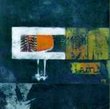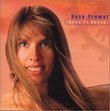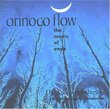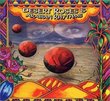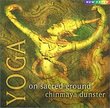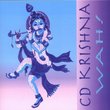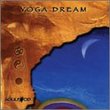| All Artists: Nusrat Fateh Ali Khan Title: Rough Guide to Nusrat Fateh Ali Khan Members Wishing: 1 Total Copies: 0 Label: World Music Network Release Date: 3/4/2002 Genres: International Music, Pop Styles: Far East & Asia, India & Pakistan, Pakistan Number of Discs: 1 SwapaCD Credits: 1 UPC: 605633107821 |
Search - Nusrat Fateh Ali Khan :: Rough Guide to Nusrat Fateh Ali Khan
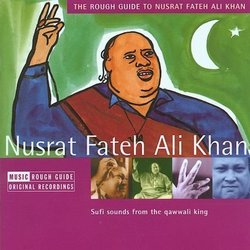 | Nusrat Fateh Ali Khan Rough Guide to Nusrat Fateh Ali Khan Genres: International Music, Pop
The Rough Guide to Nusrat Fateh Ali Khan celebrates the singer who died tragically young four years ago, and who single-handedly put the Pakistani qawwali style on the international map. The music's mystical peace and l... more » |
Larger Image |
CD DetailsSynopsis
Amazon.com The Rough Guide to Nusrat Fateh Ali Khan celebrates the singer who died tragically young four years ago, and who single-handedly put the Pakistani qawwali style on the international map. The music's mystical peace and love message may have made it a laudable export, but its freewheeling modes can be initially hard on the Western ear. What sold it to audiences was this man's extraordinary vocal virtuosity. He could holler with rasping roughness, or he could weave the most delicate melismas. He was adept at pacing his long solos--these 10-minute tracks are mere excerpts--and at building to a blazing climax. All these songs are ecstatically in praise of Allah and his saints, but they range from intimate religious rituals to orchestrated numbers complete with attendant female choruses almost in the Bollywood mode. The liner notes are by Jameela Siddiqi, author of the relevant Rough Guide chapter, and they're exemplary: she places this music in its historical and religious context with lucid authority. "Out of a thousand listeners," said Nusrat, "even if just one feels closer to his Creator, then my work is done." Listen attentively to this marvelous record and you'll see what he meant. --Michael Church Similarly Requested CDs
|
CD ReviewsGreat CD J. E. Calcat | Detroit, MI | 06/04/2003 (5 out of 5 stars) "This is a wonderful CD, especially for anyone who is totally foreign to Nusrat's music. The first six tracks are qawwali (the Sufi music that Nusrat was known for making famous outside of the subcontinent)in the more traditional form, while the last two tracks are charming pop songs with Qawwali vocals on top. The CD contains tracks from over a half dozen of Nusrat's various other CD's, many of which are hard to find today. All the tracks are refreshing and very easy to get into. My favorite is 'Buha Aes Wele Kine Kharkaya' - track 6 - have a listen if you're in doubt of the other tracks - i can guarantee you'll love it! This CD is a must buy!" A demonstration of Nusrat's talent George Banjo | Seattle, WA USA | 07/31/2008 (5 out of 5 stars) "Whether you're new or already a fan of qawwali, this is not to be missed. Nusrat Fateh Ali Khan definitely deserves a whole rough guide to his music, and this does justice to his immense talent. It starts with a song in praise of God, and then an energetic song in praise of Ali. Nami Danam starts out slow, with the introduction to the melody and verses, and then picks up tempo until it is wild, reminiscient of the style of the Sabri Brothers and the best qawwali. The next track is very long and takes more than one listen to appreciate, but it showcases the amazing power of Nusrat's voice, and his power of improvisation in making pieces unique. Track 5 is a classic qawwali song, and one of the best. Track 6 is from his early career, featuring a zither. The last two tracks are modern and pop influenced, but they're still traditional qawwali in the words and melody. Mera Sohna Sajan actually sounds quite nice, with strings and tabla, and the last track, a classic (Dam Mast Qalandar) is okay in places too (it has the same melody as the qawwali, and even has a chorus, albeit an irritating, pop chorus), but it has guitar solos, annoying trumpets and rather crappy electronic beats - but it is an original recording by Nusrat, he knew what he was doing, and it's music in praise of God (or in this case, in praise of the saint Shahabaz Qalandar) so it doesn't matter what form that takes.
There are unfortunately only eight tracks, (after all, qawwali performances can last more than half an hour) and many of them here are excerpts that fade out, but that's really fine (there are full versions of his qawwali frequently available anyway). In fact, for a CD of Qawwali, eight tracks is alot, a generous number. The liner notes are excellent, more about qawwali than about Nusrat's life, but excellent nonetheless, and reveal the nature of most of the selections here as the different types of qawwali, even including translations of some of them, and the basic subject of all of them. This is a true introduction to qawwali, not to the "western-friendly" Nusrat songs, so this is not necessarily a collection of his most soulful or moving qawwalis. It's a rough guide in the true sense, and an excellent one. If you are a fan of Nusrat Fateh Ali Khan (and everyone should be), or new to qawwali, this cannot be missed, and there is much to love here even if you just love music. I'm just waiting until World Music Network comes out with a Rough Guide to the Sabri Brothers, or better yet a Rough Guide to Qawwali." |

 Track Listings (8) - Disc #1
Track Listings (8) - Disc #1